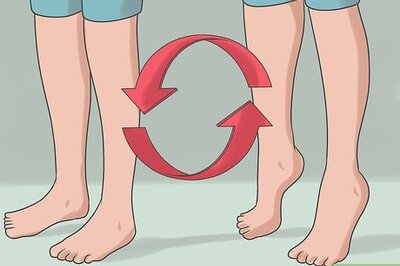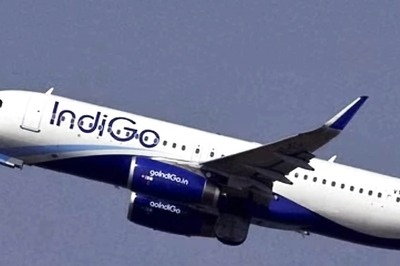
views
BRUSSELS: When EU leaders gather this week for their last summit of the Donald Trump era, expect fulsome declarations of hope for a renewed transatlantic alliance under Joe Biden, but rather less to be said about a sudden end to Trump’s trade war.
Disputes over steel tariffs, tech taxes and airplane subsidies will not be resolved overnight: after four years of deep freeze, the best that officials hope for is a slow thaw.
“Expecting a big bang on trade under Biden is unrealistic. Buy America will still be there. The tariffs will not just disappear,” said an EU official working on trade. “A success might be just no new conflict.”
From climate change to security, there is a wide range of issues on which Europeans hope for an almost immediate improvement in cooperation from a new U.S. president, after years of thinly veiled hostility from his outgoing predecessor.
But trade is tougher. Not only are tariffs that Trump imposed on European steel and aluminium in 2018 hard to lift, but Washington could even impose new levies on French handbags and cosmetics as soon as next month, just before Biden takes office.
“The United States has for many years not been a friendly partner for European countries,” French Finance Minister Bruno Le Maire said on the day after the U.S. election last month, noting that the outcome would not alter U.S. interests.
“They are rivals, sometimes with confrontation, when we are threatened and hit by American sanctions.”
“EASY TO WIN”
Overturning decades of free trade consensus was a central part of Trump’s “America First” agenda. In 2018, declaring that “trade wars are good, and easy to win”, he shocked allies by imposing tariffs on imported steel and aluminium from most of the world.
While Trump later dropped tariffs against Australia, Japan, Brazil and South Korea in return for concessions, he kept them in place against more than $7 billion worth of EU metal. The bloc retaliated with tariffs on more than $3 billion worth of U.S. goods, from orange juice and blue jeans to Harley Davidson bikes, and took its case to the World Trade Organization.
EU foreign policy chief Josep Borrell said the bloc would prefer a “friendly agreement” over a WTO legal challenge. Nevertheless, the EU has said it will more than double its retaliatory tariffs if it secures a favourable WTO ruling, or in March 2021, whichever comes first.
While Biden promises to be more predictable than Trump, he is not expected to lift the steel tariffs immediately. Even if he wants to, he could run into reluctance from producers in “rust belt” states such as Michigan and Pennsylvania that secured his election win.
Hosuk Lee-Makiyama, director of trade think tank ECIPE, said the United States was unlikely to award Europe a “free pass”, noting that countries that had offered concessions to have their tariffs lifted could complain if Europe won better treatment.
The next big dispute coming down the path is over digital services taxes, which Europeans want to impose on global tech companies that now pay little tax in the countries where their customers live.
Although international negotiations are under way on the issue, France has already introduced a levy on online revenues, and the EU says it will unveil a similar policy for the entire bloc from mid-2021 if the talks fail.
If the Trump administration follows through on threats next month, Biden could inherit new 25% tariffs on French luxury goods, as well as pressure to defend America’s biggest companies, Amazon, Apple, Facebook, Google and Microsoft.
The best prospect for an early rapprochement may come in a dispute that pre-dates Trump, a 16-year-old quarrel between Boeing and Airbus over state subsidies, which led to retaliation from both sides. Sources have described high-level negotiations under way as “substantive”.
“There’s a chance there could be progress, even before the inauguration,” said an EU source.
Resolving future trade disputes could become easier, if Biden reverses Trump policy that paralysed the WTO by blocking the appointment of judges to its appellate body. A first step could be backing a candidate agreed by others to fill the vacant post of WTO director general, said Reinhard Buetikofer, a German trade expert for the Greens in the European Parliament.
“The disruption of trade relation under Trump will not just fade away when he leaves office. It needs active trust-building,” Buetikofer said. “This will be a step-by-step process, not a sudden revolution.”
Disclaimer: This post has been auto-published from an agency feed without any modifications to the text and has not been reviewed by an editor
Read all the Latest News, Breaking News and Coronavirus News here




















Comments
0 comment